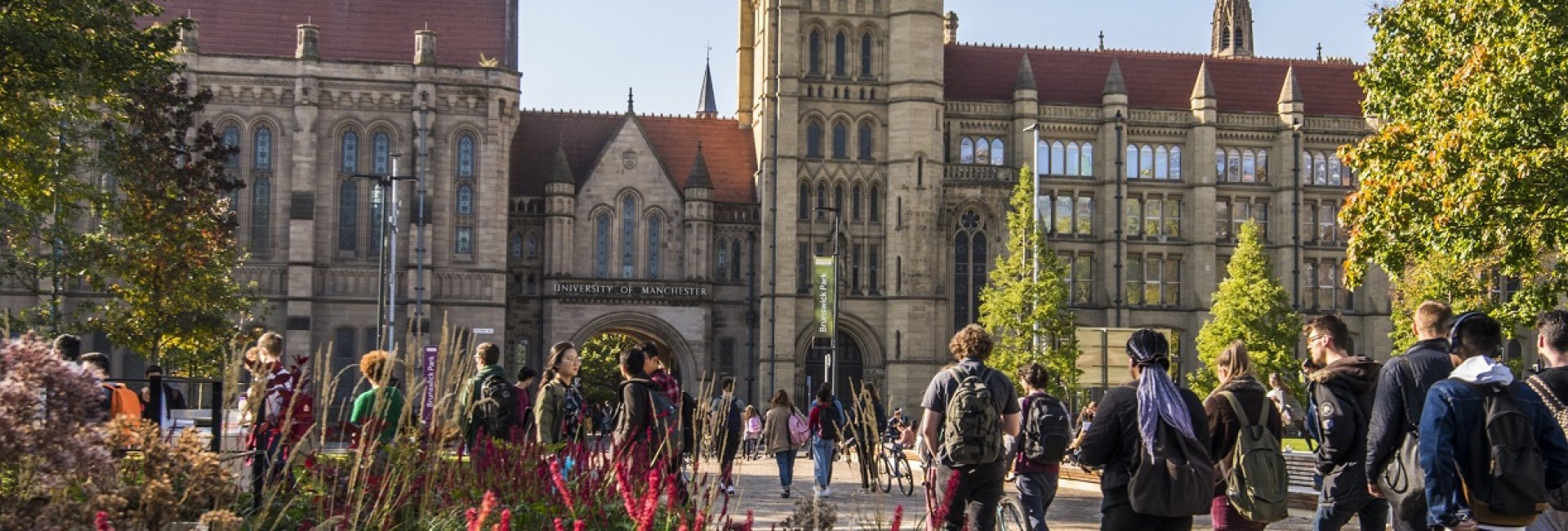The University of Manchester Open Day: in person / on campus
21 Jun 2025, 09:15
Manchester

The programme includes four foundational course units in the first year of study, ‘Thinking Digital Media’, ‘History of Big Data’ and ‘Researching in the Digital Age’ I & II. These units will equip students with the necessary knowledge and skills to think, learn and research from a digital media perspective. Further core units in subsequent years—including ‘Big Questions in the Digital World’, ‘Researching with Digital Methods’ (Y2) and ‘Digital Futures’ (Final Year)—will familiarize students with contemporary issues and debates about digital technology, broaden their digital skills, and inspire them to offer creative alternatives to digital challenges. Students will also produce an independent research project (dissertation) in the final year of study.
Additionally, students will be able to take optional units to expand their knowledge and skills according to their interests. These additional units will be offered from within and beyond the Digital Media programme, and will zoom in on such topics as race; gender and sexuality; climate change; fake news and disinformation; activism and social change; visual communication; and mobility. There will also be an opportunity for students to undertake a year-long work placement.

Learn what it's like to study at University of Manchester. From key stats to campus highlights, open days, and more - find everything you need to know here.
This course is not accepting applications at this time. Please contact the provider to find out more.
The following entry points are available for this course:
The University recognises a number of foundation programmes as suitable for entry to this undergraduate programme:
Applicants completing the INTO Manchester in partnership with The University of Manchester international foundation programme are required to achieve grades AAB and an EAP score of A.
Applicants studying other Foundation programmes should contact the academic School to check if their qualification is recognised for entry to this programme and for specific entry requirements.
| Test | Grade | Additional details |
|---|---|---|
| IELTS (Academic) | 7 | 7.0 overall with no less than 6.5 in any one component. |
Acceptable Equivalent English Language Qualifications https://www.manchester.ac.uk/study/international/admissions/language-requirements/
We operate contextual admissions meaning many applicants receive an offer and are admitted at least one grade below standard entry requirements. Entry requirements for applicants meeting contextual admissions criteria are listed next to the standard entry requirements on course profiles.
Contextual admissions means we consider your application in context helping us to ensure everyone has a fair chance of getting into Manchester. The data we use is automatically provided on your UCAS form.
This section shows the range of grades students were previously accepted with - learn more. It is designed to support your research but does not guarantee whether you will or won't get a place. Admissions teams consider various factors, including interviews, subject requirements, and entrance tests. Check all course entry requirements for eligibility.
We are unable to show previous accepted grades for this course. This could be because the course is new, it's a postgraduate course, there isn't enough historical data, or the provider has opted out of sharing their entry grades data for this course - learn more.
Operated by the Office for Students
Employment after 15 months (Most common jobs)
Go onto work and study
The number of student respondents and response rates can be important in interpreting the data – it is important to note your experience may be different from theirs. This data will be based on the subject area rather than the specific course. Read more about this data on the Discover Uni website.
No fee information has been provided for this course
Tuition fee status depends on a number of criteria and varies according to where in the UK you will study. For further guidance on the criteria for home or overseas tuition fees, please refer to the UKCISA website.
Fees for entry in 2025 have not yet been set. For entry in 2024 the tuition fees were £9,250 per annum for home students, and are expected to increase slightly for 2025 entry.
Oxford Road
Manchester
M13 9PL
Visit our website Visit our course page
Email:study@manchester.ac.uk
Phone:+44 (0)161 275 2077